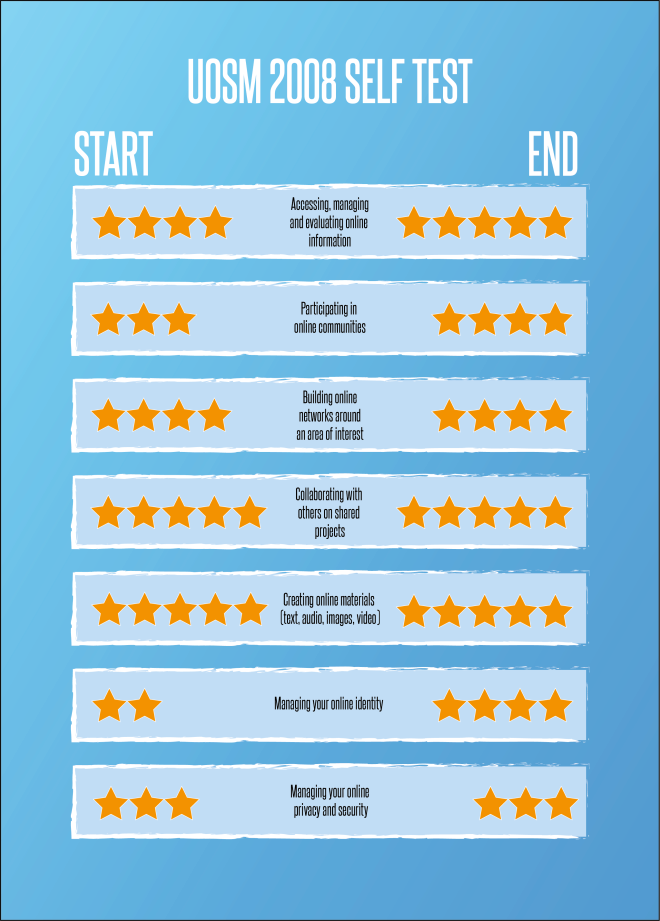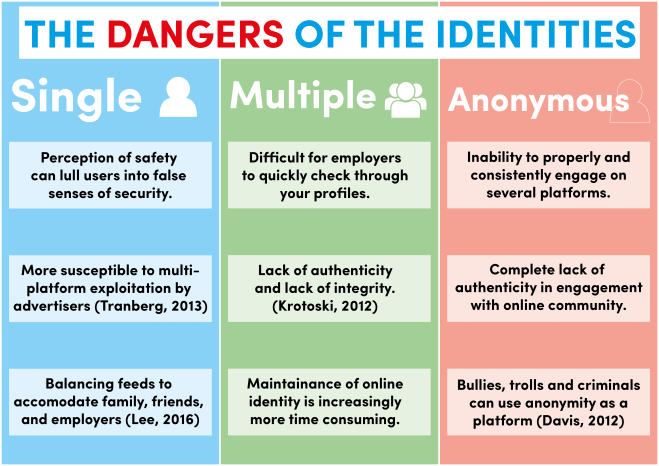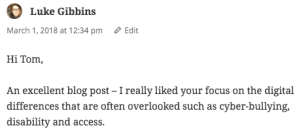
Final Reflection
Each topic of this module seemed like critical individual incidents of learning, and as such I am employing Strategy 1 to surgically reflect on my progress throughout the module. I will preface my reflection with a completion of my Digital Literacies Self-Test.
‘Digital Literacies Self-Test’, Graphic by Tom Pethick, 2018.
I want to dive deeper into exactly what changed to cause this universal growth in digital literacy, however, and will do so through four strands of reflection.
Continue reading →






